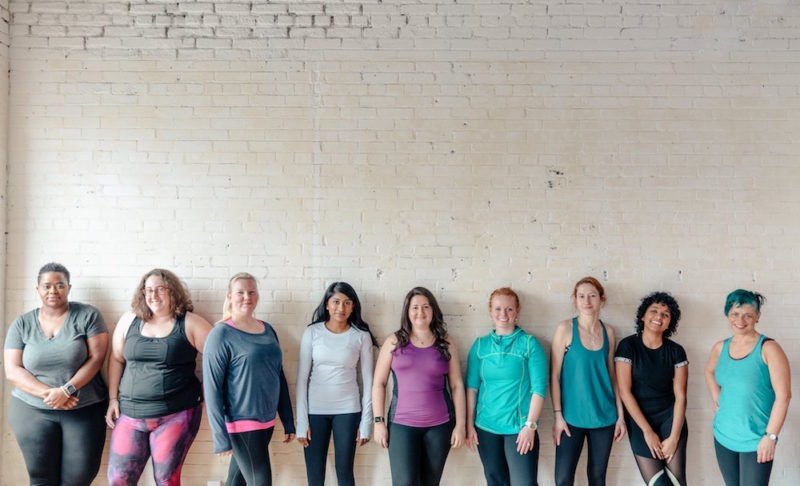
I’m getting packed for a weekend trip to San Diego. While I’m not sorry to be leaving the snow behind (February has been a very snowy month here) in favor of milder temps (Highs in the low 60s? I’ll take ’em!), I’m mostly excited about what I’ll be doing while I’m gone…diving deeper into my body positive journey.
I’ll be doing the Be Body Positive facilitator training offered by The Body Positive, a non-profit organization founded by in 1996 by Connie Sobczak and Elizabeth Scott, LCSW. Connie is author of the book Embody: Learning to Love Your Unique Body (and quiet that critical voice), which I highly recommend. This is The Body Positive’s mission:
The Body Positive teaches people how to reconnect to their innate body wisdom so they can have more balanced, joyful self-care, and a relationship with their whole selves that is guided by love, forgiveness, and humor.
The Be Body Positive Model has been used for both the prevention and treatment of eating disorders, with people all along the spectrum of eating and body image issues, but it’s also beneficial for people who don’t have specific struggles, but want to experience more joy in their relationships with their bodies and lives. It has five core life skills, or “competencies” (all discussed fully in Embody) that promote a healthy, confident relationship to the body:
- Reclaim Health
- Practice Intuitive Self-Care
- Cultivate Self-Love
- Declare Your Own Authentic Beauty
- Build Community
Becoming proficient at using these skills allows you to care for your whole self—body, mind, and spirit—from a place of self-love and appreciation. That’s very different from how many people “care” for themselves, from a place of self-hatred and perpetual disappointment in how their bodies look or function.

What is “body positivity”?
I feel that I would be remiss if I mention body positivity without talking about what that means, generally. The body positivity movement has, like many good things (including mindfulness) been co-opted by advertisers, weight loss companies, and so on. Look at posts tagged #bodypositive or #bopo on Instagram, and you might think that you only have the right to be body positive if you have lost weight or achieved six-pack abs. Not so!
I’m going to totally paraphrase Connie Sobczak (I know I read or heard her say something very close to this, but I can’t find exactly where…it may have been on a podcast) when I say, that everyone has the right to be body positive, because it’s a positive thing to be alive and have a body. Her sister, who died as the result of an eating disorder, no longer has that option.
Variations on the body positive theme
So what happens if you want to take care of yourself from a place of self-love, but you really don’t feel positive about your body? Is that just one more thing you’re “failing” at? Let me offer some various definitions/terms that may be helpful:
- Body Positivity. OK, I’m totally pulling this from Wikipedia: “Body positivity is a social movement rooted in the belief that all human beings should have a positive body image and be accepting of their own bodies as well as the bodies of others. The movement sets forth the notion that beauty is a construct of society, and poses that this construct should not infringe upon one’s ability to feel confidence or self-worth.” You’ll notice that there are a few “shoulds” in there. Don’t we have enough “shoulds” in our lives?
- Body Love. Isabel Foxen Duke makes an excellent point about a common definition of body love: “To have a certain opinion of yourself—whether it be attractive, fashionable, or any other opinion—is not, in my experience, the deepest expression of the word ‘love.'” She points out that a mother doesn’t love her baby because it’s cute—she loves it because it’s her baby. So, an unconditional sort of love. But still, loving our bodies unconditionally can feel hard, at least sometimes, so here’s another concept….
- Body Respect. I like this quote from registered dietitians Evelyn Tribole, MS, RD, and Elyse Resch, MS, RD, in their book Intuitive Eating: A Revolutionary Program That Works. “Respecting your body means treating it with dignity, and meeting its basic needs. Many of our clients treat their pets with more respect than their own bodies—they feed them, take them out for walks, and are kind to them.” Even if we find it hard to love our bodies or feel positive about them—at least for now—we can probably learn to treat them with dignity and meet their basic needs. For a whole book on this topic, I recommend Body Respect by Lindo Bacon, PhD, and Lucy Aphramor, PhD, RD.
- Body Acceptance. Body acceptance is sort of a neutral space, where even when you don’t feel like you can love or celebrate your body (which may be the case every day or just on some days), you can accept that your body is your body, and continue to show it respect. Do I love my cellulite? Um, no. But I accept that I have it, that I will continue to have it, and that about 90 percent of women—so, women of all shapes and sizes—have it. I also am conscious of the fact that we’ve been socially conditioned to see cellulite as “bad,” and that is not the same thing as cellulite actually being “bad.” I feel compelled to not that “acceptance” is not the same thing as resignation. When we become resigned, we tend to mentally check out, and our bodies deserve more than that. They deserved to be cared for, with kindness.
- Body Liberation. I am pretty sure I first heard the term “body liberation” when listening to Jess Baker, author of Landwhale, being interviewed on a podcast. I found this in a post on her blog, which I encourage you to read in its entirety: “Liberation is freedom from all outside expectations, even our own. Liberation is not having to love your body all the time. Liberation is not asking permission to be included in society’s ideal of beauty. Liberation is bucking the concept of beauty as currency altogether. Liberation is recognizing the systemic issues that surround us and acknowledging that perhaps we’re not able to fix them all on our own. Liberation is personally giving ourselves permission to live life.”
I will have lots more to say and share as this weekend progresses. So watch the blog, or follow me on Facebook, Twitter and Instagram.
Note, this post contains Amazon Affiliate links.






